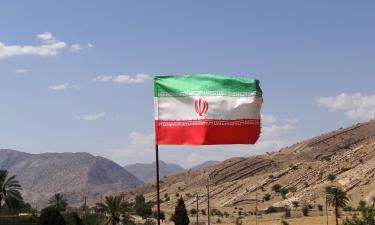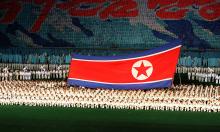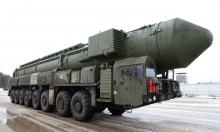Moscow Mayor Needs No Security, Craves For Water - 10 April, 2003
The mayor of the Russian capital was the runner-up in the nomination the Most Egregiously Stupid Award. This was the prize for Luzhkov's persistent striving to preserve Propiska identity papers, which means a special permission for foreigners and even citizens of Russia to be in Moscow. Privacy International experts say that although this permission is necessary as a security measure against terrorism and crime, it doesn't actually perform the function, as anyone can pay just several dollars to policemen not to be punished for having no propiska.
Disputes about propiska (it is also called registration in Moscow) have been very heated in Russia for several years already. It is no use to mention again and again that the measure is illegal as it violates freedom of movement and other basic human rights (Luzhkov turns a deaf ear to instructions of the prime minister and Russia's Supreme Court on the propiska subject); no need to say that the measure is ineffective against the background of the still worsening criminal situation in the Russian capital. It's enough to mention the hostage crisis in the theatre center in October 2002.
The winner himself slightly cares about problems that arise in connection with propiska and registration in Moscow and about effectiveness of the measure, he is thinking globally. For half a year already the Moscow mayor has been preoccupied with the idea of turning the flows of Siberian rivers to Asia, the one that was in use in the Soviet era.
It seems that the Moscow mayor has read a lot of booklets on the world water reserve by UNESCO. Here is one of these booklets.
UNESCO published a rating of the world countries regarding the standard of their water reserves. Finland, Canada and New Zealand have water of the best quality. Russia is rated 7th by UNESCO. The worst situation with water reserve is experienced in Belgium, Morocco and India. Regarding the volume of water reserve, the world leaders are the following countries: Denmark (owing to Greenland), French Guiana and Iceland. Russia wasn't mentioned among the top ten. The worst situation with quality of water reserve is in Kuwait, the Gaza Strip (Palestinian autonomy) and United Arab Emirates. The USA was rated 12th regarding the standard of water reserves and 63rd regarding its volume.
It was half a year ago that Yury Luzhkov spoke about the problem for the first time but his statement was disregarded at that time. That is why he decided to wait for a convenient moment to speak about "turning of Siberian rivers to Asia" once again.
The patience of the Moscow mayor wasn't in vain. Yesterday an international conference "Russia and Central Asia: water problem and cooperation strategy" opened in Moscow. Yury Luzhkov was among the speakers at the conference.
The mayor of Russia's capital is sure that the project must be realized. He said: "Now we are speaking about water as about merchandise which is abundant in Russia and that we can sell." In accordance with the project suggested by Yury Luzhkov, 5-7 percent of the water supply of the Russian rivers of Ob and Irtysh can be delivered to Central Asiatic republics. This is mostly flood flow that falls into the Arctic Ocean. As Yury Luzhkov says, the project that is estimated at $34 million may be repaid in five years already. "It may become a strong economic link between Russia and Central Asiatic republics."
The idea was expanded by Russia's first deputy minister of natural resources, head of the State Water Board Nikolay Tarasov. He said that water was getting a more and more strategic resource of the planet, that is why "the idea of turning the Siberian rivers shouldn't be ignored." Nikolay Tarasov also says that similar projects are being realized in many countries of the world.
Yury Izrael, the Director of the Global Climate and Ecology Institute brought the speakers back to the earthly reality; he said that ecological aspect of the project wasn't thoroughly studied yet. In particular, it is necessary to define the limit of soil pollution and degree of water filtration, to find out influence of the project upon saltiness of the Arctic Ocean and to study the possibility of changes in the local climate.
Fresh water makes up just 2.53 percent of the world water reserve. In the middle of the 21st century from 2 to 7 billion people in 48 countries of the world will suffer from water famine. At present, about 1.1 billion people have no access to water supply systems, 65 percent of them are living in Central Asia.
Yegor Belous
PRAVDA.Ru
Subscribe to Pravda.Ru Telegram channel, Facebook, RSS!




